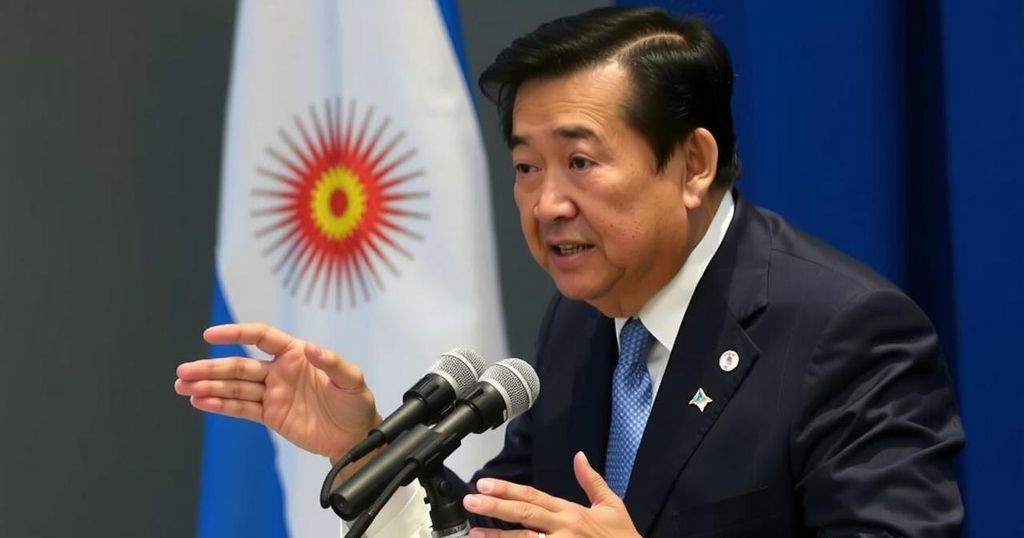Milei Dismisses Foreign Minister Following UN Vote on Cuba Embargo
Argentine President Javier Milei has replaced Foreign Minister Diana Mondino after her vote to lift the U.S. embargo against Cuba. Milei, who favors alignment with the U.S. and Israel, appointed Gerardo Werthein as her successor to reinforce this stance. The decision follows a UN resolution advocating the end of the embargo and highlights tensions over Cuba within Milei’s administration.
In a significant political shift, Argentine President Javier Milei dismissed Foreign Minister Diana Mondino following her vote in favor of lifting the United States embargo against Cuba during a United Nations General Assembly session. The vote, which saw overwhelming support from the General Assembly, was met with opposition only from the U.S. and Israel. President Milei, who is known for his libertarian ideology and staunch pro-United States stance, expressed dissatisfaction with the decision, especially as he had previously taken steps to distance Argentina from Cuba and other leftist governments in the region, including Venezuela. Gerardo Werthein, the current ambassador to the United States, has been appointed to succeed Mondino as Foreign Minister. The dismissal emphasizes Milei’s intention to align Argentina’s foreign policy closely with that of the United States and Israel, particularly in opposing regimes he perceives as dictatorial. Discussions surrounding the vote had already been contentious, as evidenced by the earlier decision of Argentina’s state-owned energy company, YPF, to halt fuel provisions to the Cuban airline, Cubana, leading to the suspension of a long-standing route between Havana and Buenos Aires. This move was subsequently justified by Argentine officials as a response to the U.S. embargo.
Javier Milei, inaugurated as Argentina’s President in late 2023, has adopted a foreign policy reflective of libertarian principles, emphasizing strong ties with the United States. His administration marks a notable shift in Argentina’s diplomatic alignments, particularly as it pertains to relations with leftist governments. The United Nations General Assembly’s recent resolution urging the end of the U.S. embargo against Cuba serves as a backdrop to this political upheaval, highlighting the divergence between Argentina’s current governmental stance and the historical diplomatic ties with Cuba. The dismissal of Foreign Minister Mondino underlines President Milei’s commitment to a foreign policy that aligns with U.S. interests, particularly in the context of Latin America’s evolving political landscape.
In conclusion, President Javier Milei’s decision to dismiss Foreign Minister Diana Mondino illustrates his administration’s rigid adherence to alignment with the United States and its foreign policy objectives. This incident not only underscores Milei’s intention to reshape Argentina’s international relationships but also highlights the ongoing debate surrounding Cuba’s diplomatic status in the region. With a new foreign minister at the helm, it remains to be seen how Argentina’s foreign relations will evolve under Milei’s leadership and the implications this may have for its historical connections with other nations.
Original Source: www.hindustantimes.com




Post Comment